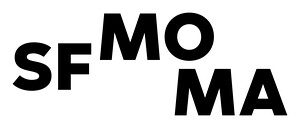Artist commissions, dialogue, research and publications, 2017-19
September 28, 2017–September 28, 2019
Yerba Buena Center for the Arts, San Francisco
Tectonic economic, technological, and cultural shifts are currently transforming the San Francisco Bay Area and beyond. The multifaceted Public Knowledge initiative will explore the meaning of these changes for civic discourse, the circulation of knowledge, and the role of libraries and museums.
Comprising artist commissions, public programs, research, and publishing endeavors, Public Knowledge is a project of the San Francisco Museum of Modern Art (SFMOMA), organized in partnership with the San Francisco Public Library (SFPL). Component programs will take place at and around branch libraries in San Francisco and Oakland, as well as at a temporary SFPL branch established within SFMOMA: Public Knowledge Library, a hub for resources, events, and installations.
In the Bay Area, where technology has both a deep local impact and a global reach, the industry has disrupted what knowledge is, how it is produced, and how it is circulated. This has led to sweeping changes in the national and global political landscape. As information and resources are increasingly privatized and public trust erodes, how can the forms and institutions of public knowledge be maintained? San Francisco’s recent tech-fueled economic boom has led to increasing inequality. Rising costs and unevenly distributed gains create ever greater difficulties for those excluded, and a sense of community and cultural memory have continued to diminish as everyday life becomes more precarious. This city’s experience of hyper-gentrification is not unique. Urban environments around the world are changing so quickly that it can be hard to interpret and respond to the ways this process impacts public life.
Public Knowledge brings together artists, scholars, librarians, organizational partners, community collaborators, and San Francisco residents to consider these issues. By sharing their varied expertise and creating new knowledge through the project’s activities, participants can begin to develop new approaches to strengthening the fabric of civic life.
Public Knowledge programs include the upcoming symposium “Does Art Have Users?” (September 27-30), presented in partnership with the Asociación de Arte Útil and the Yerba Buena Center for the Arts and its exhibition Tania Bruguera: Talking to Power / Hablándole al Poder. The event explores whether and how art can be used as a tool, with a focus on the roles that individuals and constituencies play in socially engaged artistic practices.
A Public Knowledge forum will take place in September 2018, bringing together makers, thinkers, and writers from a wide range of disciplines to contemplate together the stakes involved in maintaining public access to the tools of knowledge production, dissemination, and circulation. Details about the forum will be announced in November 2017.
Commissioned projects include work by: Burak Arikan, Minerva Cuevas, Josh Kun, Stephanie Syjuco, and Bik Van der Pol.
Public Knowledge is co-curated by Deena Chalabi, Barbara and Stephan Vermut Associate Curator of Public Dialogue, and Dominic Willsdon, Leanne and George Roberts Curator of Education and Public Practice. Stella Lochman, program associate, public dialogue, is head of production.
Advising scholars include: Julia Bryan-Wilson, Jon Christensen, Teddy Cruz, Fonna Forman, Jennifer A. González, Shannon Jackson, and Fred Turner.
Public Knowledge is organized by the San Francisco Museum of Modern Art (SFMOMA) in partnership with the San Francisco Public Library (SFPL). The project has been made possible in part by a major grant from the National Endowment for the Humanities: Exploring the human endeavor. Additional support is provided by the California Arts Council, a state agency, and the National Endowment for the Arts, a federal agency.
For further updates on the different facets of Public Knowledge, writings on related topics, and information about public programs, please visit publicknowledge.sfmoma.org.

